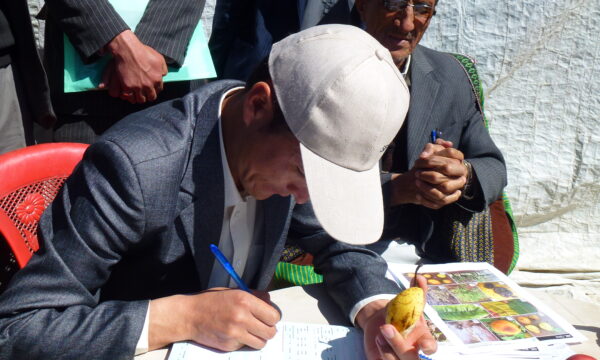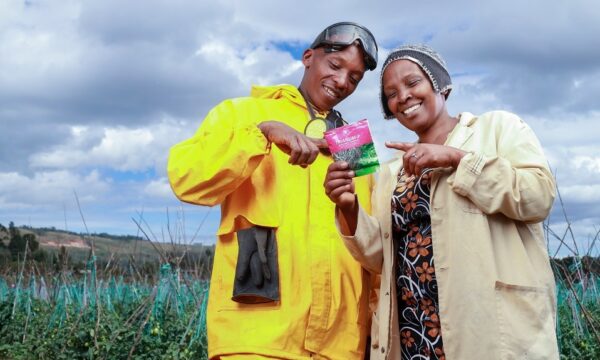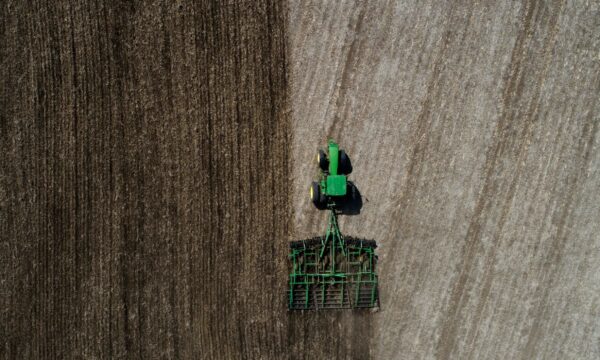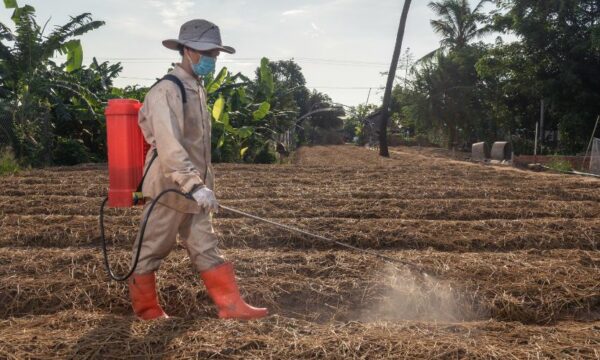Contributed by Melanie Bateman, CABI Switzerland
Quarantine, then and now
 During the 1400s, it is estimated that one third of Europe’s population died of the plague. In order to slow its spread, some cities adopted radical measures. For example, the Viscount of Reggio, Italy, decreed that anyone sick with the plague should be moved to fields outside the city to either recover or die. The word “quarantine” derives from the Italian word “quarantino”, referring to the 40 day isolation period that ships coming from plague areas had to undergo before entering the Mediterranean port of Ragusa[1].
During the 1400s, it is estimated that one third of Europe’s population died of the plague. In order to slow its spread, some cities adopted radical measures. For example, the Viscount of Reggio, Italy, decreed that anyone sick with the plague should be moved to fields outside the city to either recover or die. The word “quarantine” derives from the Italian word “quarantino”, referring to the 40 day isolation period that ships coming from plague areas had to undergo before entering the Mediterranean port of Ragusa[1].
While the movement of goods and people remains a pathway for the spread of pests and diseases, modern frameworks such as the International Plant Protection Convention have been established in order to promote international cooperation to prevent the spread of pests which cause crop losses and do harm to natural ecosystems. Member countries work together, for example, by identifying potential means for pests to move to new areas (such sea containers or internet sales), and then the member countries agree on approaches to address these issues. For example, International Standards for Phytosanitary Measures (ISPMs) have been adopted which provide guidance on surveillance, pest eradication and the establishment of pest free areas.
Regulating the “chemical age” in agriculture
Following World War II, there was an explosion in the availability and use of different types of pesticide compounds. Within five years of the US’s adoption of the Federal Insecticide, Fungicide and Rodenticide Act in 1947, almost 10,000 pesticides were registered with the US Department of Agriculture[2]. The following decades revealed the hazards to human health and the environment associated with some of these chemicals. Many countries took steps to regulate pesticides at a national level, but a need for concerted international cooperation became apparent.
Responding to this need, joint action has been taken. For example, in the 1970s the World Health Organisation first published the WHO Recommended Classification of Pesticides by Hazard. This document has been revised multiple times, with the most recent version published in 2009. Member countries of the Stockholm Convention have agreed to reduce the release of persistent organic pollutants (POPs) into the environment. The list of POPs currently targeted for elimination includes 16 pesticides. Rotterdam Convention member countries have agreed not to trade chemicals that are banned or severely restricted for human health or environmental reasons without the consent of the importing country. The list of chemicals requiring prior informed consent includes 33 pesticides.
Linking policy and practice
The standards adopted by the IPPC and the reviews of chemicals carried out by the Stockholm and Rotterdam Conventions are intended to respond to identified needs such as pathways for pest spread or harm to human health and the environment caused by hazardous pesticides.
The dark ages are over; countries are no longer left to suffer harm caused by pest spread or toxic pesticides on their own in isolation through radical measures. The frameworks provided by the aforementioned conventions are science-based to ensure that risks are minimized while not unduly impacting livelihoods, for example, by being overly restrictive to trade.
Decisions taken by the governing bodies of these conventions can have a bearing on the plant health networks that Plantwise engages with and the communities that they support. For example, implementation of the standards on pest surveillance, pest eradication and pest free areas is carried out by governments and happens at the level of communities.
For this reason, Plantwise follows developments under these agreements and aims to share key information with its partners in the Plantwise countries. This information can help support action in order to influence the policies as they are being developed or implementation of the policies once they are established in order to address problems that farmers face.
This blog is providing information on recent developments from the 10th session of the Commission on Phytosanitary Measures, the governing body of the IPPC. In May the governing bodies of the Rotterdam and Stockholm Convention will meet, and updates on the outcomes will be forth coming.
[1] The origin of quarantine http://cid.oxfordjournals.org/content/35/9/1071.full
[2] http://www.livinghistoryfarm.org/farminginthe40s/pests_01.html
Related News & Blogs
Soil health: why it’s important and how to protect it
This blog was originally uploaded on the CABI BioProtection Portal Soil is the foundation of agriculture and sustains life on earth by providing nutrients, clean air and water. Human activities can damage soil health and, therefore, impact entire ecosy…
27 December 2023




